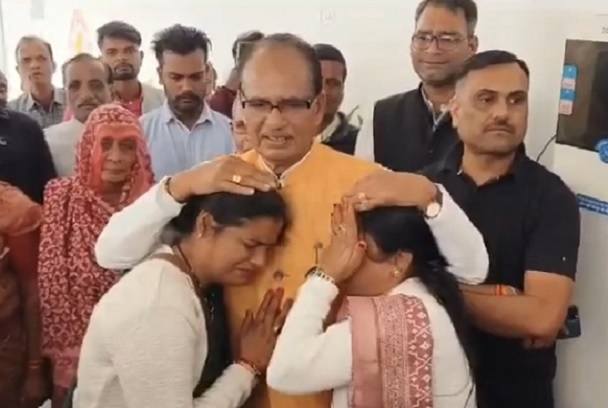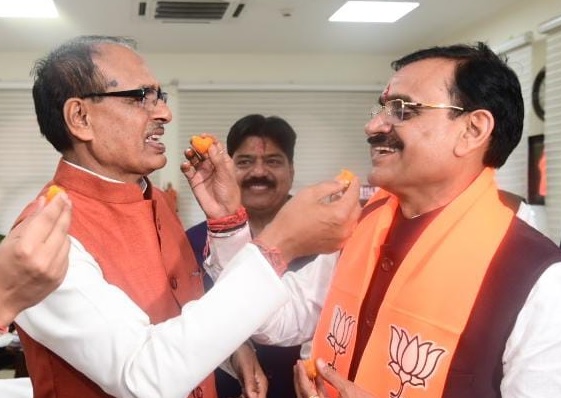'Marital rape remains a legal blind spot, law is not in sync with constitutional promises'

Shahid P Sayed
NewsBits.in
The land that celebrates the feminine and equates it with divine, refuses to accept that even wives have the right to say 'no'. Doesn't it sound contradictory! It does.
There is need to talk about the elephant in the bedroom--marital rape. Defined as non-consensual sex within marriage, it is rape—but without consequences if you're legally married. Under Section 375 of the IPC, the law effectively says: 'If you are married, consent is optional'. A free pass for forced sex, provided you've signed the marriage certificate.
Colonial Logic, Patriarchal Legacy
This legal loophole isn’t even ours to begin with. It’s a hangover from 18th-century British jurist Sir Matthew Hale, who declared that a wife gives 'implied consent' for life. The country simply inherited this twisted idea and never let it go. We've updated laws like raising the marital age from 15 to 18, but left this foundational rot untouched.
It's like painting over a termite-infested wall and wondering why it keeps crumbling. 'We have other laws,', they say. But do we have them? The government insists that the Domestic Violence Act and Section 498A offer enough protection.
But let’s be clear—they don’t criminalize marital rape. They offer civil remedies, often requiring women to produce physical evidence of assault. Emotional coercion, psychological trauma, or sustained sexual pressure? The law has no space for that. Unless you show up half-dead, your pain isn’t 'serious' enough. The marital rape exception doesn't gel with the rights that our Constitution promises:
Article 14: Equality before the law—unless you're a married woman.
Article 21: Right to life and personal liberty—unless your husband disagrees.
In the 2022 RIT Foundation v. Union of India case, the Delhi High Court was split. Justice Rajiv Shakdher found the exception unconstitutional, calling it a violation of Articles 14, 15, 19(1)(a), and 21.
Justice C. Hari Shankar, on the other hand, upheld the exception, citing the 'legitimate expectations' of marriage. The split verdict stalled progress. The case remains stuck in legal limbo before the Supreme Court. Meanwhile, women wait and continue to suffer.
“But What About the Sanctity of Marriage?”
This much repeated line resurfaces every time reform is proposed. Critics worry that criminalizing marital rape will 'destroy the institution of marriage'. But a marriage built on fear, silence, and coerced sex isn’t sacred—it’s violence under the guise of tradition.
In its 2024 affidavit, the government argued that calling it 'rape' is too harsh. As if word choice is the real problem—not the trauma, not the broken bodies, not the buried dignity.
The Reality: Violence Behind Closed Doors
According to NFHS-5, 32% of married Indian women have experienced sexual violence. 99.1% of cases go unreported. Victims face lasting trauma, PTSD, physical injuries, and reproductive harm—including during pregnancy. Yet we continue to debate whether “rape” is too strong a word.
Obsessed But Still In Denial
The society's relationship with rape is disturbing—not just in practice, but in how we consume it. Rape sells (sic). It trends. It outrages us—until something shinier distracts us. Then we go back to our wedding reels and WhatsApp forwards.
We don’t just tolerate rape; it is even glorified (sic). Bollywood normalizes stalking and coercion as romantic. 'Item numbers' turn objectification into entertainment. Rape survivors have been termed as 'characterless'. Meanwhile, entire groups rally to defend rapists—if they belong to particular caste, religion, or political party. In fact, places of worship get washed after a rape survivor enters. Worse, many garland the convicts when they get released.
On one hand, people are obsessed with sex, but at the same time, they are avoid talking about it the most important and related aspects. We’ve reached the population of 1.4 billion people, but still shy away from sex education. Consent? That’s a Western import, we say. We police women’s clothing, behavior, and autonomy—but rarely teach boys about boundaries or respect.
Sex is treated as a prize men win, not a mutual experience. That’s why the idea of consent—even in marriage—is still alien to many.
A Judgement That Broke the Silence—With Poetry
Amidst this darkness, one rare judicial moment stood out. In 2024, Judge Tabassum Khan of Madhya Pradesh sentenced a child rapist to death—but not with cold legalese. She used poetry to voice what the law often fails to:
“A little bud, crushed before bloom,
A monster walked in her room.
Not death, but horror did she meet,
Her lullabies drowned in screams so deep.”
Her words cut through legal jargon and reminded us: rape is not just a violation of law—it’s a violation of humanity.
The world has moved on. Why haven’t we? Over 150 countries—including Nepal and Bhutan—have criminalized marital rape. Sweden did it in 1965. The UK in 1991. The world moved forward. India too needs to march ahead.
What Must Change?
Repeal the marital rape exception in Section 375 of the IPC.
Criminalize non-consensual sex within marriage—without caveats.
Support survivors with shelters, therapy, legal aid, and sensitive policing.
Educate judges, police, families, and schools that consent is universal—not conditional on a sindoor or mangalsutra.
Conclusion: A Simple, Urgent Question
Will India finally recognize that married women are not property—but citizens with agency, dignity, and rights? Or will we keep pretending that a wedding certificate is a license for lifelong silence?
The Supreme Court may take its time. But we, as a society, must focus on this issue and stop hiding behind 'culture'. Because a country that protects marital rape isn’t just violating its women—it’s violating its own Constitution.
[Shahid P Sayed is a well-known lawyer who practices in High Court. He holds a degree of BE and MSCE (USA) apart from MBA(USA) apart from LLB (India), DMJ & FS. The views expressed in the article his own.]









